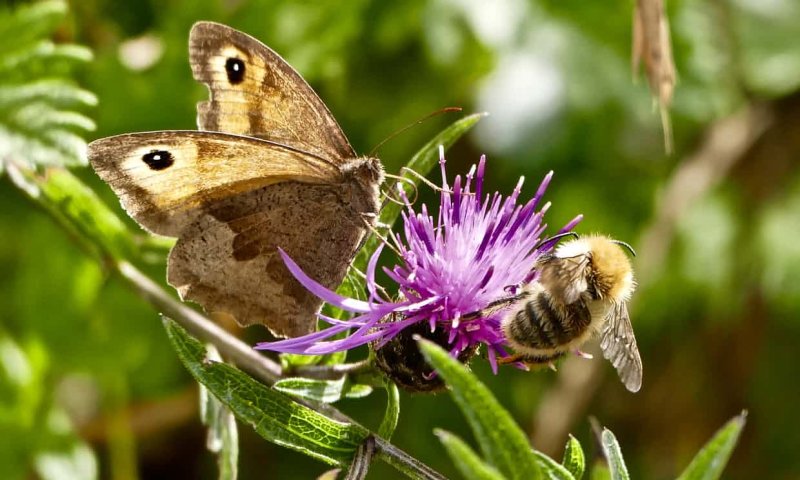The UK will back a total ban on insect-harming pesticides in fields across Europe, the environment secretary, Michael Gove, has revealed.
The decision reverses the government’s previous position and is justified by recent new evidence showing neonicotinoids have contaminated the whole landscape and cause damage to colonies of bees. It also follows the revelation that 75% of all flying insects have disappeared in Germany and probably much further afield, a discovery Gove said had shocked him.
Neonicotinoids are the world’s most widely used insecticide but in 2013 the European Union banned their use on flowering crops, although the UK was among the nations opposing the ban. The European commission now wants a total ban on their use outside of greenhouses, with a vote expected in December, and the UK’s new position makes it very likely to pass.

…
In an article for the Guardian, Gove said: “As is always the case, a deteriorating environment is ultimately bad economic news as well.”
…
Gove said the evidence of neonicotinoids’ harm to pollinators has grown stronger since 2013, including a landmark field trial published in July that showed neonicotinoids damage bee populations, not just individual insects, and a global analysis of honey revealing worldwide contamination by the insecticides.
The GLP aggregated and excerpted this article to reflect the diversity of news, opinion and analysis. Read full, original post: UK will back total ban on bee-harming pesticides, Michael Gove reveals































